Our Curriculum
At East Killara, we provide an enriching environment where children can explore, learn, and grow with confidence. We recognise that each child is unique, with their own strengths, interests, and pace of development. By providing a thoughtfully prepared space that inspires meaningful engagement, we support children in becoming confident, capable, and compassionate individuals.
Our commitment is to guide children on their learning journey, helping them build essential skills, develop strong social connections, and cultivate a deep respect for themselves, others, and the world around them.
Key Areas of Learning:
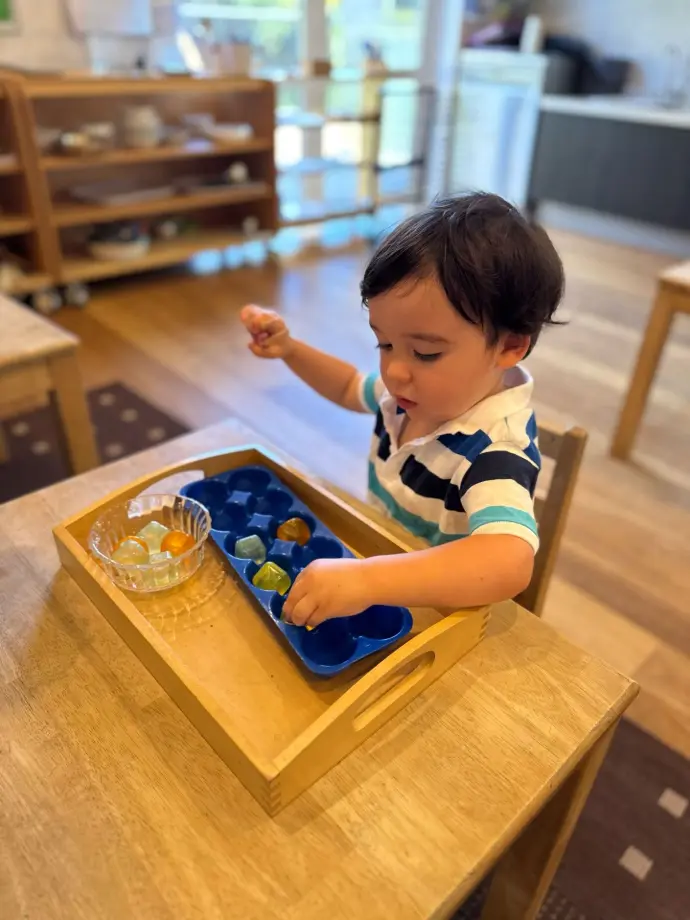
Practical Life
Children develop independence and responsibility through activities that mimic real-life tasks, such as pouring, folding, cleaning, and care of the environment. These activities help children build fine motor skills, concentration, and self-esteem while fostering a sense of accomplishment and confidence.
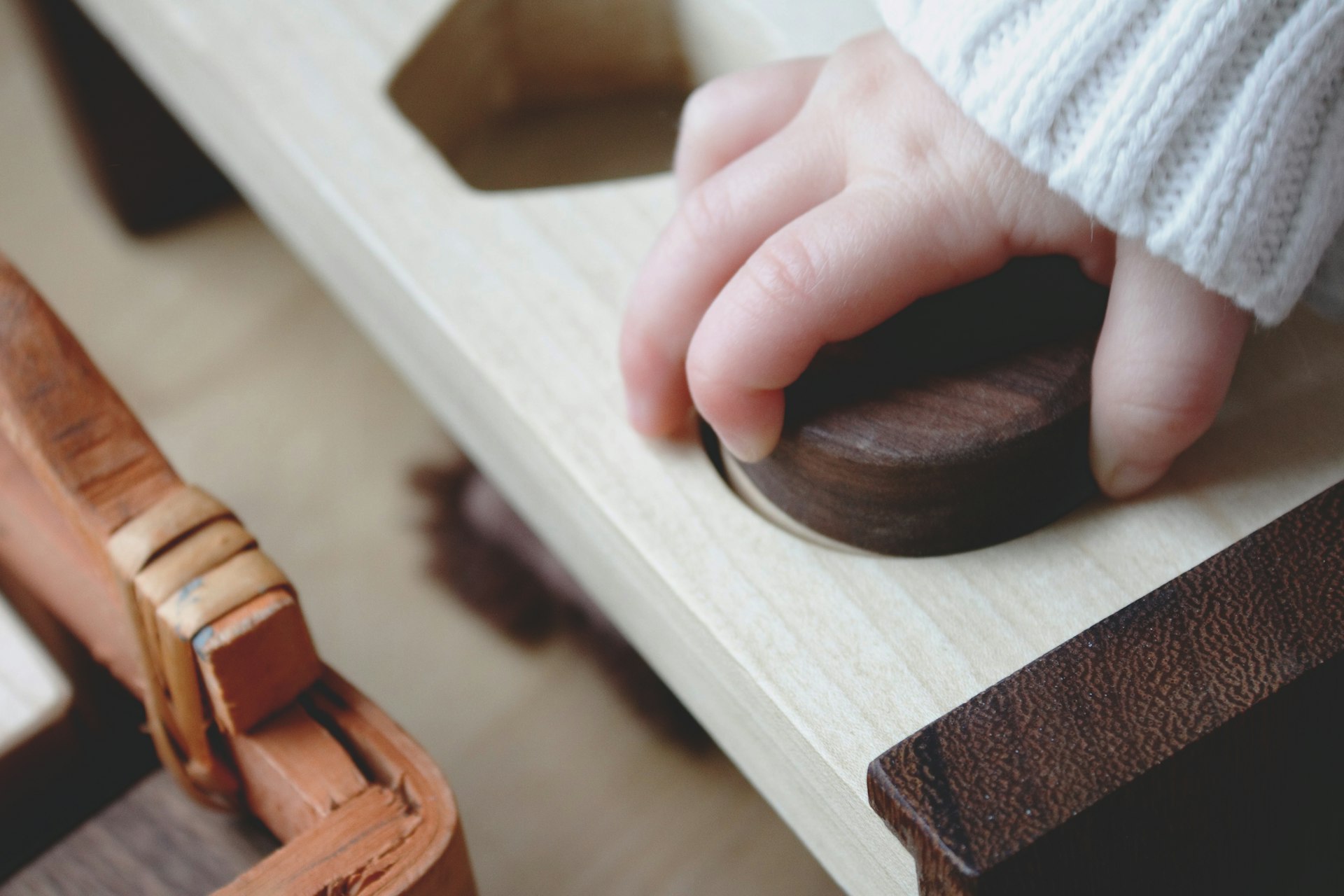
Sensorial
Through specially designed Montessori materials, children explore and refine their senses—touch, sight, smell, sound, and taste. These activities not only support cognitive development but also enhance awareness and discrimination of the physical world around them.
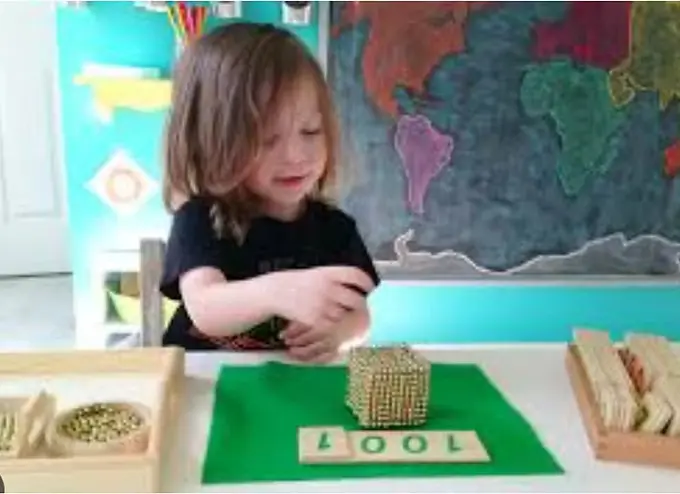
Mathematics
Using concrete materials such as beads, counters, and blocks, children develop a solid understanding of mathematical concepts, such as counting, addition, and patterns. These hands-on experiences allow them to grasp abstract mathematical ideas through real-world applications and visualisation.
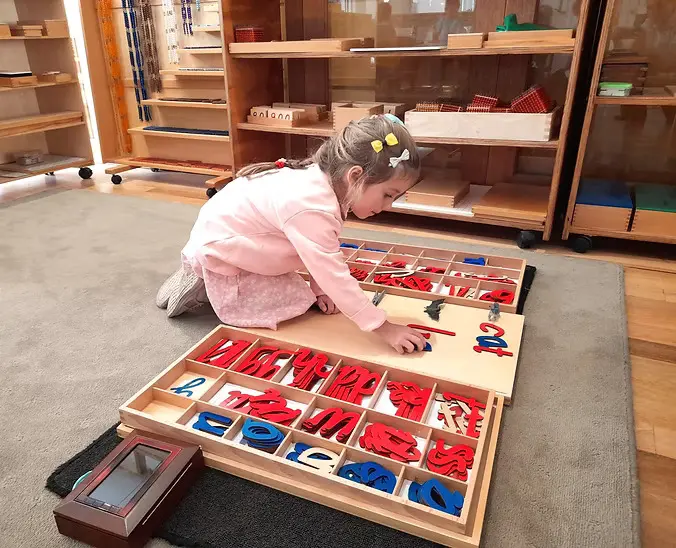
Language
Our Montessori curriculum fosters language development through a rich environment of reading, writing, and verbal communication. Children engage in activities that promote vocabulary building and phonetic awareness. Writing and reading are introduced in a natural way, encouraging a love of language and literature.
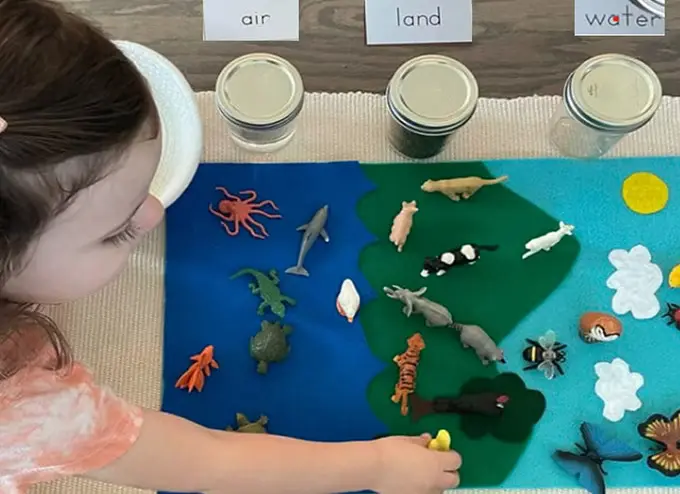
Cultural Studies
Children are introduced to the rich diversity of the world through cultural studies. They explore geography, history, science, and the arts, encouraging an appreciation for other cultures and perspectives. This fosters a sense of global citizenship and respect for the environment and people around them.
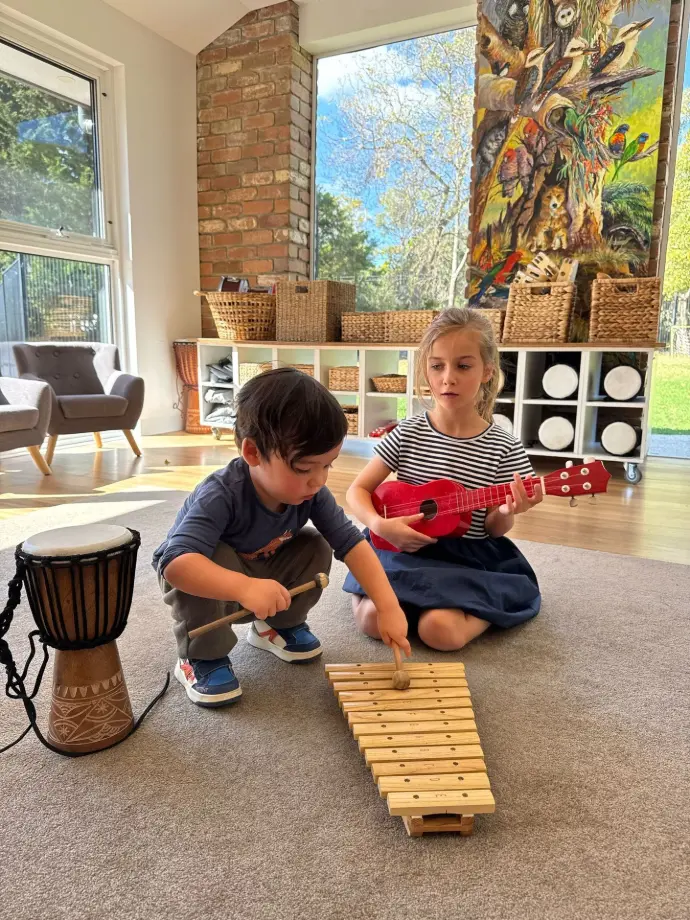
Music and Dance
Creativity is integral to the Montessori experience. Children are encouraged to express themselves through art, music, and movement. These activities enhance fine motor development, build confidence, and allow children to explore their imaginations in a nurturing, non-judgmental environment.
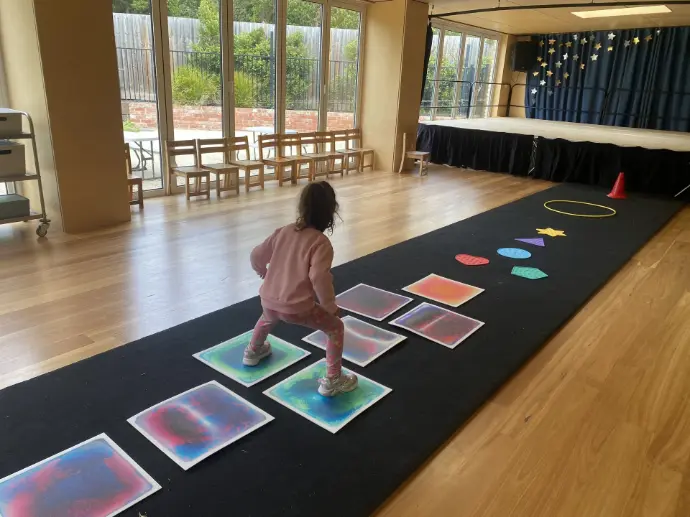
Sport and Physical Activity
Our Sport and Physical Activity Program fosters motor skills, coordination, and teamwork through age-appropriate activities, promoting physical development and a love for movement.
Key Montessori Principles That Guide Our Learning Environment
Child-Centred Learning
Each child is viewed as an individual with unique interests, abilities, and learning styles. Our educators observe and guide children, allowing them to choose activities that align with their developmental stage and curiosity.
Prepared Environment
Our classrooms are thoughtfully designed to promote independence and hands-on learning. Materials are accessible, age-appropriate, and purposefully selected to encourage exploration, concentration, and self correction.
Independence and Responsibility
Children are encouraged to make choices, solve problems, and manage tasks independently. This fosters self confidence, decision-making skills, and a sense of responsibility for their environment and community.
Hands-On Learning
Montessori emphasises learning through doing. Concrete, tactile materials help children grasp abstract concepts in areas such as math, language, and science, leading to deeper understanding and long-lasting knowledge.
Respect for the Child and Others
Respect is at the heart of the Montessori approach. We value each child's voice, ideas, and developmental journey, while also teaching respect for peers, educators, and the world around them.
Mixed-Age Classrooms
Children aged 3 – 5 learn together in mixed-age groups, fostering peer learning, collaboration, and leadership. Younger children observe and learn from older peers, while older children reinforce their knowledge by mentoring younger classmates, promoting empathy, confidence, and a sense of responsibility.
Focus on the Whole Child
Montessori education nurtures not just academic growth but also social, emotional, and physical development. Activities foster creativity, empathy, conflict resolution, and self-regulation, supporting the child’s overall well-being.
Freedom Within Limits
Children are given freedom to choose their activities within clear boundaries set by the educator. This balance helps children develop self-discipline, respect for rules, and the ability to work independently or collaboratively.
Love of Learning
By fostering curiosity and intrinsic motivation, Montessori creates lifelong learners who enjoy exploring new ideas, asking questions, and seeking knowledge beyond the classroom.
Through these principles, we aim to support each child's journey toward becoming confident, capable, and compassionate individuals.